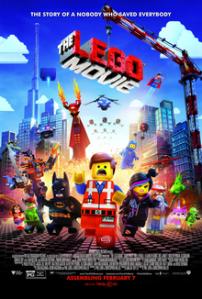
Given my proclivity to seek the profound in what is often considered the banal, I have been mulling over The Lego Movie.Before you cast the first brick, yes, I know this movie is five years old and I know that it has sophisticated intertextuality with other movies and sly humor.I use banal in the sense that Legos are, quite literally, plastic and they don’t work well in conveying the human form.Our overactive psyches help here, and we give the characters their necessary humanity, but this is a movie for kids, even with its Trump-like President Business forecast some two years before the last election.With all of that being said, and the word “forecast” already being used, my “Bible radar” zeroed in on the prophet in the movie, Vitruvius.
Vitruvius is based on a combination of Tiresias, the blind prophet, and any number of biblical characters who forecast the future.Dressed like Moses, but named after a Roman author and architect, Vitruvius utters the prophecy at the beginning of the film and returns as a character that combines Obi-Wan Kenobi and the prophet Samuel.(I said there was sophisticated intertextuality.)Whether any of this is intentional is difficult to say—well the Obi-Wan part is pretty obvious—but it plays into the common view of prophets.One of the points I make in Holy Horror (which deals with a different genre of movie) is that people understand biblical ideas through the lens of pop culture.Prophets, through that lens, tell the future.In the Bible itself they don’t do that very much, but since the New Testament reads itself into the Hebrew Bible (more intertextuality) the idea became pretty fixed that prophets told the future all day long.
Ironically, Vitruvius—a name that sounds like “virtue”—was famous for describing perfect proportions.Indeed, Leonardo da Vinci’s “Vitruvian Man” sketch is based on this idea.As ideas go, this is a false one against which many of us struggle our entire lives.There is no perfect, Platonic human body.Yes, certain people are attractive, but genetics and circumstances make us who we are.And some of us grew up without Legos, but despite that deficiency we came to know the product.The Lego characters aren’t in any sense of Vitruvian proportions.Witty and intertextual, they’re made of plastic and they encourage us to buy for our children.And one wonders whether Vitruvius is a prophet or a hidden symbol of that word’s homonym.Let the building begin.
